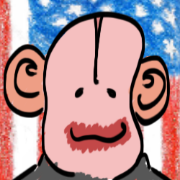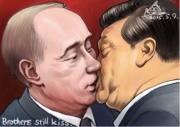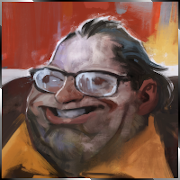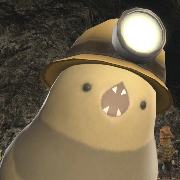(Thread IKs:
dead gay comedy forums)
|
what government exists in a state of grace other than Vatican City
|
|
|
|

|
| # ? May 23, 2024 13:47 |
|
"free of sin" isn't a marxist idea, and as any marxist knows a state being capitalist is different from a society containing capitalist relations (because for instance wage labor was ongoing before the bourgeoisie took state power via revolution and remade the state in their image). the article doesn't deny that chinese workers sell their labor-power to capitalists or that those capitalists go on to collect surplus value. what it is saying is that many important hallmarks of a capitalist state, i.e. a dictatorship of the bourgeoisie whose ultimate purpose is to safeguard and encourage capitalism, are missing from china. it's not about "more" government control (the us government is certainly exerting absolute, totalitarian control over workers when it stands back to allow private corporations to devour laborers en masse), it's about whether government serves capital or capital serves government
|
|
|
|
Raskolnikov38 posted:what government exists in a state of grace other than Vatican City https://m.youtube.com/watch?v=HfRwdGzS1m0
|
|
|
|
you know what i mean. everybody going on about the post-revolutionary mix of capitalism and socialism in the economy is suddenly real shy about looking at the chinese state/ccp as anything but a stalwart of socialism, pure and unblemished
|
|
|
|
R. Mute posted:I haven't read the second article, but the first one is laughably bad. it's just so utterly unwilling to delve beyond the surface, digging just deep enough to make the argument that china is clearly socialist but no further. you're a moron
|
|
|
|
Centrist Committee posted:epstine wasn’t a billionaire dummy yup just your average joe prol who owns a sex island
|
|
|
|
The Voice of Labor posted:yup just your average joe prol who owns a sex island mila kunis posted:you're a moron
|
|
|
|
R. Mute posted:you know what i mean. everybody going on about the post-revolutionary mix of capitalism and socialism in the economy is suddenly real shy about looking at the chinese state/ccp as anything but a stalwart of socialism, pure and unblemished eh, i wouldn't say so. in practical terms china is basically a social democracy right now, with the unusual distinction of having drawn in most of the capital that sustains its burgeoning social programs from more advanced nations that have historically exploited it rather than weaker nations that it was able to plunder. however i think it's pretty unquestionably under the control of the cpc rather than the bourgeoisie as a class, because if it actually were the bourgeoisie calling the shots there'd be a lot of things the government simply could not do that it's doing now
|
|
|
|
dead gay comedy forums posted:aren't you thinking of them as abstract instead of modes of production, though? They don't theoretically inform each other though. If the capitalist world makes a breakthrough in material science or whatever then of course the socialist world should try their hardest to acquire that knowledge but that's very different from adopting Taylorism and one man management systems. It's the reproduction of social relations from capitalist society which should be viewed with great suspicion because they're essentially creating an enemy within. It's not a disaster to sometimes end up selling things on the world market, it is a disaster to start imbedding commodity production and free labour in your society as that's creating conditions for capitalist capital accumulation. That has obviously happened in China and we're left with the evaluation of what that's done to it. The argument about billionaires getting got is trying to answer the question of what did they challenge and lose against and that is an important question but the fact that they can lose doesn't automatically mean they took on a workers state. Ferrinus posted:eh, i wouldn't say so. in practical terms china is basically a social democracy right now, with the unusual distinction of having drawn in most of the capital that sustains its burgeoning social programs from more advanced nations that have historically exploited it rather than weaker nations that it was able to plunder. however i think it's pretty unquestionably under the control of the cpc rather than the bourgeoisie as a class, because if it actually were the bourgeoisie calling the shots there'd be a lot of things the government simply could not do that it's doing now You're right and that's why your article concludes there's a bureaucratic collectivist thing going on. As a system it has a real degree of autonomy from serving capital but is not dogmatically hostile to it. Bourgeois states have also shown the ability to discipline capital on occasion (not recently but it happens) but never for so long, similarly the workers under China has seen extreme material gains on one hand but extreme neglect on the other. It's not an easy fit into the usual dichotomy as it is without historical parallel.
|
|
|
|
man, if only jeff had contacted out the work of recruiting and exploiting teen girls he could've transcended beyond his petite bourgeois status and he would still be with us today
|
|
|
|
Ferrinus posted:eh, i wouldn't say so. in practical terms china is basically a social democracy right now, with the unusual distinction of having drawn in most of the capital that sustains its burgeoning social programs from more advanced nations that have historically exploited it rather than weaker nations that it was able to plunder. however i think it's pretty unquestionably under the control of the cpc rather than the bourgeoisie as a class, because if it actually were the bourgeoisie calling the shots there'd be a lot of things the government simply could not do that it's doing now i wouldn't call it a social democracy because they don't have most of the welfare state elements in place that the post ww2 keynesian states did, its somewhere on a line between that and the USSR but its own unique thing. china isn't a socialist state - it had to make concessions to recover from the wreckage of the GPCR and hijacking the global capitalist apparatus desire to shed themselves of the burden of paying their own labour worked. but it's not a dictatorship of the bourgeoisie either, oligarchs do not call the shots and that's a huge deal, because it represents the last credible threat left. mila kunis posted:https://www.ft.com/content/1fe0559f-de6d-490e-b312-abba0181da1f https://www.economist.com/briefing/2020/08/15/xi-jinping-is-trying-to-remake-the-chinese-economy quote:The trend reflects China’s new reality. The Communist Party has greater control over all aspects of life, and Mr Xi has greater control over the party. This does not just mean it is a good idea for companies to butter him up. It means that he is in a position to reshape the economy within which they prosper or fail. What is he doing with it? quote:Yet the basic tension in the SOE sector remains unresolved. Yes, the government has put more emphasis on profitability, but that does not mean decisions get made according to commercial logic. Indeed, under Mr Xi national duty—supporting China’s rise—is more important than ever. And stricter party control is confusing lines of responsibility. An executive with a major state-owned insurance firm says that its party committee now controls all senior personnel appointments and expresses “opinions” on all investments worth more than 20% of net-asset value. Opinion is a euphemism. “It is normally the final decision. No one would go against the party secretary,” he said. “But if something goes bad, the board will be responsible.” mila kunis posted:not sure i agree with all of this espescially when he goes off on some weird trotskyite tangents but its an interesting/informative read
|
|
|
|
i sense a great disturbance in the force...the sound of a few dozen online ultraleftists sarcastically crying out "socialism is when the government own things...state capitalism much??" while the CCP continues to take china forward
|
|
|
|
The Voice of Labor posted:man, if only jeff had contacted out the work of recruiting and exploiting teen girls he could've transcended beyond his petite bourgeois status and he would still be with us today Epstein was killed because he couldn't run an elite pedophile blackmail ring without telling on himself and all of his associates. Meanwhile Jack Ma gets knocked down a few pegs and forced to go through re-education because he was agitating for deregulation of Chinese financial markets with cheap credit for speculators. Chinese disciplining of its capitalist class has a clear intent of maintaining party control of Chinese political economy, whereas Epstein was killed for purely cynical reasons of espionage. The American equivalents of Jack Ma or Guo Wengui aren't just able to do whatever they want, they run the government.
|
|
|
|
namesake posted:You're right and that's why your article concludes there's a bureaucratic collectivist thing going on. As a system it has a real degree of autonomy from serving capital but is not dogmatically hostile to it. Bourgeois states have also shown the ability to discipline capital on occasion (not recently but it happens) but never for so long, similarly the workers under China has seen extreme material gains on one hand but extreme neglect on the other. It's not an easy fit into the usual dichotomy as it is without historical parallel. If China were dogmatically hostile to capital, then it would be isolated as a pariah state and cut off from world markets. For China to pursue development in the absence of a 2nd World means navigating the existing hegemony of capital.
|
|
|
|
mila kunis posted:i wouldn't call it a social democracy because they don't have most of the welfare state elements in place that the post ww2 keynesian states did, its somewhere on a line between that and the USSR but its own unique thing. china isn't a socialist state - it had to make concessions to recover from the wreckage of the GPCR and hijacking the global capitalist apparatus desire to shed themselves of the burden of paying their own labour worked. but it's not a dictatorship of the bourgeoisie either, oligarchs do not call the shots and that's a huge deal, because it represents the last credible threat left. it certainly compares poorly to the classic nordic social democracies because it just doesn't have as generous social programs - yet - but the basic fact of the state liberally (heh!!!) skimming off the top of capitalist profits to invest in general public health and quality of life (green energy, rail, poverty reduction, still-patchwork-but-improving healthcare, etc) is why i would call it a hardscrabble/poor social democratic society in practice, like from the perspective of the man on the ground rather than a geopolitical strategist. your lack of personal possessions compels you to sell your life to a boss one day at a time, but you see returns on that sale above and beyond the bare fact of getting paid your wage, and not at the begrudging and contemptuous absolute minimum of social welfare that you see in the US
|
|
|
|
Pener Kropoopkin posted:Epstein was killed because he couldn't run an elite pedophile blackmail ring without telling on himself and all of his associates. Meanwhile Jack Ma gets knocked down a few pegs and forced to go through re-education because he was agitating for deregulation of Chinese financial markets with cheap credit for speculators. Chinese disciplining of its capitalist class has a clear intent of maintaining party control of Chinese political economy, whereas Epstein was killed for purely cynical reasons of espionage. I would contend that in both cases it was a matter of maintaining a facade. the facade of legitimacy of the rich and powerful not being a bunch of kid fuckers on one hand and the facade of legitimacy granted by having an actual real productive economy that makes stuff and doesn't rise and fall based on speculative manipulation and money printers on the other. the later leans towards communism, sure, but I'm not convinced that the motivation behind it has anything to do with the interests of the people. I think it mostly comes down maintaining party legitimacy, regardless of what party position actually is. outcome and intention are usually looked at separately because outcome can be accidental, there's a point where moral luck is bound to run out
|
|
|
|
mila kunis posted:i sense a great disturbance in the force...the sound of a few dozen online ultraleftists sarcastically crying out "socialism is when the government own things...state capitalism much??" while the CCP continues to take china forward but have you considered they watched some youtubers make leftwing memes to dunk on neoliberals? why would they need to know anything else except that one richard wolff quote?
|
|
|
|
Really feel like yall would be happier if the revolution stayed 'pure' and then failed tbh. There's a reason everyone likes Allende and it's because he didn't live to actually rule.
|
|
|
|
|
The Voice of Labor posted:I would contend that in both cases it was a matter of maintaining a facade. the facade of legitimacy of the rich and powerful not being a bunch of kid fuckers on one hand and the facade of legitimacy granted by having an actual real productive economy that makes stuff and doesn't rise and fall based on speculative manipulation and money printers on the other. the later leans towards communism, sure, but I'm not convinced that the motivation behind it has anything to do with the interests of the people. I think it mostly comes down maintaining party legitimacy, regardless of what party position actually is. outcome and intention are usually looked at separately because outcome can be accidental, there's a point where moral luck is bound to run out So is the assumption here that the party secretly wants to deregulate financial markets and is only pretending to care about Jack Ma for appearances? This is a bunch of nonsense.
|
|
|
|
Pener Kropoopkin posted:If China were dogmatically hostile to capital, then it would be isolated as a pariah state and cut off from world markets. For China to pursue development in the absence of a 2nd World means navigating the existing hegemony of capital. Your first sentence is true but China didn't have the 2nd world to rely on since the split anyway. They'd been operating without any firm foreign support for several years at that point and opening up as and when they did was a choice. It might even have been the best choice available to the Chinese people as a whole rather than isolation, war and balkanisation, but it's important to understand what that actually means. SSJ_naruto_2003 posted:Really feel like yall would be happier if the revolution stayed 'pure' and then failed tbh. There's a reason everyone likes Allende and it's because he didn't live to actually rule. I thought we'd managed to stick mostly to descriptive analysis rather than moralistic ones. If something continues to exist but that's because it no longer pursues a socialist path that's really important to clear up.
|
|
|
|
https://twitter.com/AmbZhengZeguang/status/1408786709324648448?s=20 https://twitter.com/YXiusheng/status/1408236401536258048?s=20
|
|
|
|
Pener Kropoopkin posted:https://twitter.com/AmbZhengZeguang/status/1408786709324648448?s=20 The ruling party aren't ashamed to call themselves communists because they get to decide what communism means. You're free to take them at their word but there's nothing stopping you applying a bit of analysis to the situation either.
|
|
|
|
namesake posted:The ruling party aren't ashamed to call themselves communists because they get to decide what communism means. You're free to take them at their word but there's nothing stopping you applying a bit of analysis to the situation either. You are the one who's trying to gatekeep communism with all this undialectical nonsense where we argue over a strict definition of what socialism is.
|
|
|
|
communism with blade runner characteristics
|
|
|
|
Maybe China can settle for "socialism with chinese characteristics" but I'm built different.
|
|
|
|
i wish I lived in China they have free healthcare and no Covid
|
|
|
|
I wish we could have anti-revisionist conversations about communist countries other than China. How about Cuba or Nepal? It's like eating breakfast cereal every day for every meal.
|
|
|
|
Pener Kropoopkin posted:You are the one who's trying to gatekeep communism with all this undialectical nonsense where we argue over a strict definition of what socialism is. It's hardly strict when we see all kinds of collective production being replaced by wage labour causing massive inequalities in society as the new business owners literally profit from their employees work. Seems like the sort of thing socialists should raise eyebrows at. Pener Kropoopkin posted:I wish we could have anti-revisionist conversations about communist countries other than China. How about Cuba or Nepal? It's like eating breakfast cereal every day for every meal. I don't know anything about Nepal but Cuba seems to be adaptive to its circumstances like isolation from world markets in a way that's much easier to say is closer to socialist.
|
|
|
|
Pener Kropoopkin posted:If China were dogmatically hostile to capital, then it would be isolated as a pariah state and cut off from world markets. For China to pursue development in the absence of a 2nd World means navigating the existing hegemony of capital. This is why I think international proletarian revolution is so important. It's just super hard to achieve and a few tiny leftcom or trot parties fighting amongst each other isn't going to make the international proletarian revolution happen regardless of how true or false their ideas are, and for trots and some anarchists the biggest skeptics of the bureaucratic collectivists serve as useful tools of Western hegemony. It's one thing to denounce bureaucratic capitalist collectivists as such but it's another to say that they are the biggest threat to mankind or actually fascists that need to have a "democratic revolution" before a "socialist" one
|
|
|
|
Ok, man. My eyebrows are raised. I'm giving Xi Jinping the Dreamworks face. Still not sure how this proves China isn't socialist, except by going off a dogmatic and inflexible definition of it. Something that would directly contradict the social dynamic of socialism. It's their prerogative to determine how to build socialism within conditions as they actually exist. All of this hemming and hawing over whether China is truly socialist for real means nothing.
|
|
|
|
a more important question: is China magic(k) edit: sorry, this post is dogshit. John Charity Spring has issued a correction as of 21:25 on Jun 26, 2021 |
|
|
|
https://en.m.wikipedia.org/wiki/New_Democracy The whole theoretical framework for 20th century Marxism is interesting because communist leaders were interested in figuring out how to have a bourgeois revolution before a socialist one, since there were semi-feudal relations in both the USSR and China. Mao was arguably the last successful leader of a bourgeois revolution we've ever had because he successfully managed to turn a colonial backwater into a modern capitalist state, albeit one that still has an enormous rural population So many of the arguments between the Bolsheviks and the Mensheviks were about this question too. Lenin was an idealist in that he believed workers could essentially be "in charge" of the bourgeois revolution via the Soviet system, but that backslid over time given the ravages of the Russian Civil War, growth of the bureaucratic clique, etc. Feudal relations are obviously much less of a barrier now but hey, a nuclear war or a few catastrophic heat waves and floods could change that very quickly
|
|
|
|
Pener Kropoopkin posted:Ok, man. My eyebrows are raised. I'm giving Xi Jinping the Dreamworks face. Still not sure how this proves China isn't socialist, except by going off a dogmatic and inflexible definition of it. Something that would directly contradict the social dynamic of socialism. It's their prerogative to determine how to build socialism within conditions as they actually exist. All of this hemming and hawing over whether China is truly socialist for real means nothing. I'm not saying I've got some slamdunk political economy which neatly sorts out the economies of 2021, but the reintroduction of various core components of capital accumulation with the promise that the superstructure of the state will always be able to rein in the economic structure of China should raise doubt about whether this is actually a viable path to developing socialism. Evidently it doesn't for you but there's not much more I can say or do about that.
|
|
|
|
namesake posted:It's hardly strict when we see all kinds of collective production being replaced by wage labour causing massive inequalities in society as the new business owners literally profit from their employees work. Seems like the sort of thing socialists should raise eyebrows at. Fidel Castro was consistently highly supportive of China, even when some misunderstandings happened. Latin American socialists understand first and foremost that we are in the USA's backyard and the applicable strategies are necessarily far different than China's. China had the size, distance, resources, history and population to perform a capture and sequestration of international capital to become indispensable to it, allowing the utilization of those means for its project. Cuba, in comparison, is pretty much on socialism for survival mode: it is not going to start building trains, ships or airplanes anytime soon. Each and every resource available must be counted to accomplish its continued autonomy, while also to provide for the socialist guarantees available to every Cuban. Their socialism is admirable and it is highly impressive and formidable what they have achieved, but also fundamentally limited due to the systemic circumstances, so yeah
|
|
|
|
China status: really cool, actually https://twitter.com/laowhy86/status/1408478187382788100?s=19
|
|
|
|
gradenko_2000 posted:China status: really cool, actually China, much like Glenn, makes people lash out at each other here when it's wrong, but when it's right it's so right
|
|
|
|
Pener Kropoopkin posted:So is the assumption here that the party secretly wants to deregulate financial markets and is only pretending to care about Jack Ma for appearances? This is a bunch of nonsense. no, it's that the party needs to keep up appearances of the markets being regulated to maintain faith in the party. the emperor can't take all his clothes off at once. this makes ma a chauvin figure, someone who can be sacrificed so that it can be said that the system works
|
|
|
|
but the chinese markets are very tightly regulated. in fact, this is the major economic argument against they being keynesian to begin with the level of state control that China has on the economy is far greater than any post-war Keynesian state
|
|
|
|
What about the labor market? Isn't the whole point of the economic zones throughout the country to essentially free reign to foreign capital? I don't think the Walton family is in any trouble
|
|
|
|

|
| # ? May 23, 2024 13:47 |
|
Pener Kropoopkin posted:I wish we could have anti-revisionist conversations about communist countries other than China. How about Cuba or Nepal? It's like eating breakfast cereal every day for every meal. maybe cuba can invite the batistas back so we can finally have a meaningful comparison of how communist countries treat their wealthy
|
|
|






















